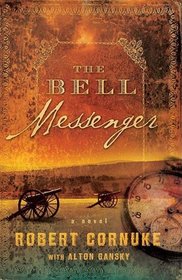Helpful Score: 2
This told an extremely unusual, interesting, and thought-provoking multi-faceted story, tracing the lives of the various owners of a certain Bible that was passed from person to person from the end of the American Civil War to the present day. Each new owner who received the Bible from the previous owner was told that if he or she cherished the Bible, it would save life and give life. If the new owner rejected the Bible, the consequences for rejection would be dire. Usually the consequesces included a bitter, unfulfilled life. Usually, if the new owner kept the Bible, his life might not be pain-or-tragedy free, but he or she ended up influencing many for the good.
The story had a good pace and held my interest throughout. Also, the characters and their stories were well-developed.
As with most books that include multiple tales by multiple characters, I enjoyed some stories better than others. I was a bit disappointed that the author did not include the full story of the original (INTHINK) owner of the Bible, Bell. (I think his first name was Eli or Elija, but it has been about a month since I have read the book, and I don't remember for certain.) He was a 14-year-old boy Confederate chaplain who was killed by an Union officer who was unaware that the war ended the day before. (Long distance communications were not as good than as they are nowadays.) But before he died, the wounded boy was able to pass on the Bible to the man who shot him.
Instead, the story starts with the Union officer. War-weary, broken, grief-stricken by the loss of his family, and torn with guilt because the boy and his soldier companions died needlessly, he first tries to give the book back to Bell's mother whose photograph he found tucked in the book's covers. Instead, the mother hands him a note written by her son to the officer forgiving him and telling him furthur about the Bible. (The boy did not die, like the officer thought, on the battle field, like the officer thought. He fainted. In fact, he lived for several days, it seems, before surcoming to his wounds.) So, the officer moves to San Francisco where he gets involved with helping inslaved and abused Chinese immigrant railroad workers and prostitutes.
I don't understand, though, why the treasure hunt was included in the story unless it was a temptation away from doing good. Certainly, most of the characters involved with it ended up in bad straits.
But, the biggest problem that I had with the book altogether is, as a Christian, I felt that the author missed the point.The Bible is not a magic talisman. It is the words in the Bible, any Bible, that try to lead a person to God.
But, these things did not keep me from thoroughly enjoying the story.
The story had a good pace and held my interest throughout. Also, the characters and their stories were well-developed.
As with most books that include multiple tales by multiple characters, I enjoyed some stories better than others. I was a bit disappointed that the author did not include the full story of the original (INTHINK) owner of the Bible, Bell. (I think his first name was Eli or Elija, but it has been about a month since I have read the book, and I don't remember for certain.) He was a 14-year-old boy Confederate chaplain who was killed by an Union officer who was unaware that the war ended the day before. (Long distance communications were not as good than as they are nowadays.) But before he died, the wounded boy was able to pass on the Bible to the man who shot him.
Instead, the story starts with the Union officer. War-weary, broken, grief-stricken by the loss of his family, and torn with guilt because the boy and his soldier companions died needlessly, he first tries to give the book back to Bell's mother whose photograph he found tucked in the book's covers. Instead, the mother hands him a note written by her son to the officer forgiving him and telling him furthur about the Bible. (The boy did not die, like the officer thought, on the battle field, like the officer thought. He fainted. In fact, he lived for several days, it seems, before surcoming to his wounds.) So, the officer moves to San Francisco where he gets involved with helping inslaved and abused Chinese immigrant railroad workers and prostitutes.
I don't understand, though, why the treasure hunt was included in the story unless it was a temptation away from doing good. Certainly, most of the characters involved with it ended up in bad straits.
But, the biggest problem that I had with the book altogether is, as a Christian, I felt that the author missed the point.The Bible is not a magic talisman. It is the words in the Bible, any Bible, that try to lead a person to God.
But, these things did not keep me from thoroughly enjoying the story.




